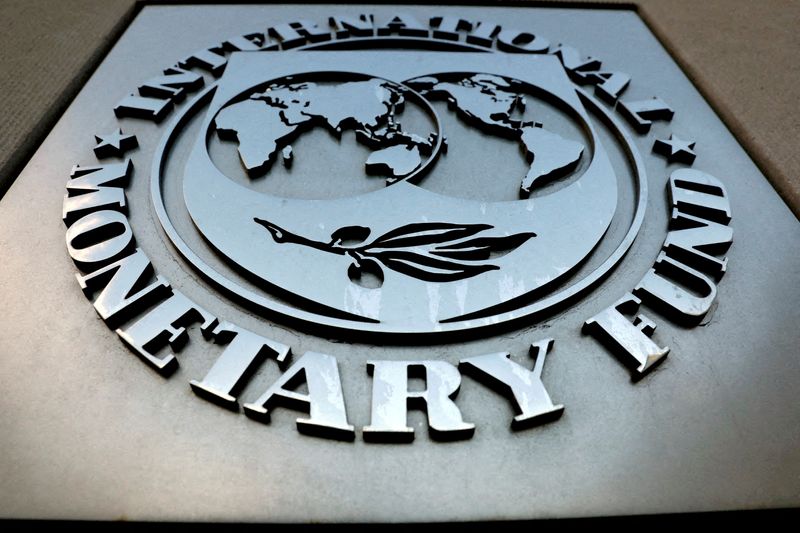IMF official says Sri Lanka reforms critical, evaluating progress
2023.05.15 09:39

© Reuters. FILE PHOTO: The International Monetary Fund (IMF) logo in Washington, United States, September 4, 2018. REUTERS/Yuri Gripas/
By Uditha Jayasinghe
COLOMBO (Reuters) -The International Monetary Fund (IMF) mission in Sri Lanka will evaluate progress made on reforms so far and complete an exercise to improve governance in key areas of the economy, an IMF official said on Monday.
An IMF team is in Colombo until May 23 as part of regular consultations ahead of the first review mission later this year. The team met with multiple officials including President Ranil Wickremesinghe, who is also the country’s finance minister.
“It is now essential to continue the reform momentum,” said Krishna Srinivasan, Director of Asia Pacific Department at IMF.
Sri Lanka, with the help of a $2.9 billion bailout from the global lender, is trying to recover from its worst financial crisis since gaining independence in 1948 and turn around its battered economy.
The island nation defaulted on its foreign debt last April.
Peter Breuer, IMF Senior Mission Chief for Sri Lanka, Asia and Pacific Department said the lender will be looking at whether the government’s macro framework is still appropriate or whether it requires revisions.
“This is something we will decide towards the end of the mission, to what extent revisions are needed,” he said.
Sri Lankan authorities formally presented a request for debt treatment in the first meeting of the official bilateral creditors committee, which include India and Paris Club members earlier this month. China, which is the island’s largest bilateral lender, participated as an observer.
Srinivasan said the governance exercise will identify key weaknesses and corruption vulnerabilities across six key areas including central bank governance, financial sector oversight, market regulations among others.
The report is expected to be completed by September and lay down recommendations to improve governance and reduce corruption going forward.
The IMF is also encouraging local authorities to come up with a strategy to bring down high domestic interest rates so that it can be part of a virtuous cycle to restore stability.
The IMF currently expects the Sri Lankan economy to contract by 3% in 2023 given the weak external environment and domestic policy tightening before registering a modest growth of 1.5% in 2024, Srinivasan said.
“Prospects hinge quite critically on the implementation of the economic reform program.”








